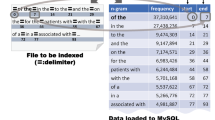Abstract
THE rapid expansion in the demand for paper and for newsprint consequent on the spread of education, as well as the habit of wrapping everything up in several coverings of paper or cardboard, is a fact which, besides its special significance as an index of progress, causes concern to those who have to find new raw materials for the paper-maker. Commencing in the period of intellectual revival after the Napoleonic wars, when the consumption of paper per head in Great Britain was only an ounce or so per annum, the demand has continued until to-day it has been estimated at more than 70 lb. a head.
The Digestion of Grasses and Bamboo for Paper-Making.
By W. Raitt. Pp. xi + 116 + 20 plates. (London: Crosby Lockwood and Son, 1931.) 21s.
This is a preview of subscription content, access via your institution
Access options
Subscribe to this journal
Receive 51 print issues and online access
$199.00 per year
only $3.90 per issue
Buy this article
- Purchase on Springer Link
- Instant access to full article PDF
Prices may be subject to local taxes which are calculated during checkout
Similar content being viewed by others
Rights and permissions
About this article
Cite this article
ARMSTRONG, E. Paper Making. Nature 128, 949–950 (1931). https://doi.org/10.1038/128949a0
Issue Date:
DOI: https://doi.org/10.1038/128949a0
Comments
By submitting a comment you agree to abide by our Terms and Community Guidelines. If you find something abusive or that does not comply with our terms or guidelines please flag it as inappropriate.



